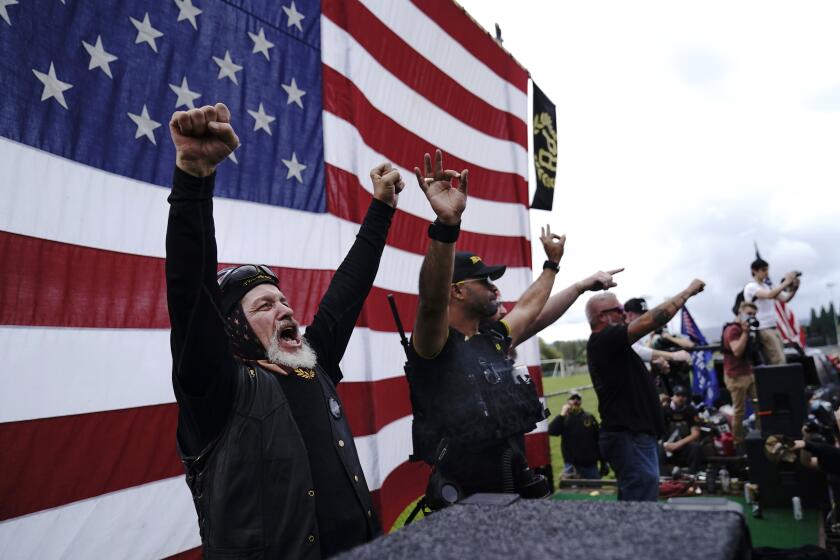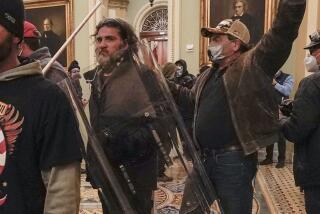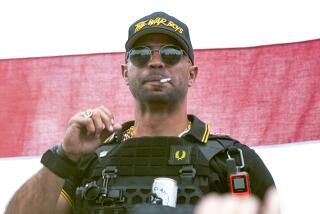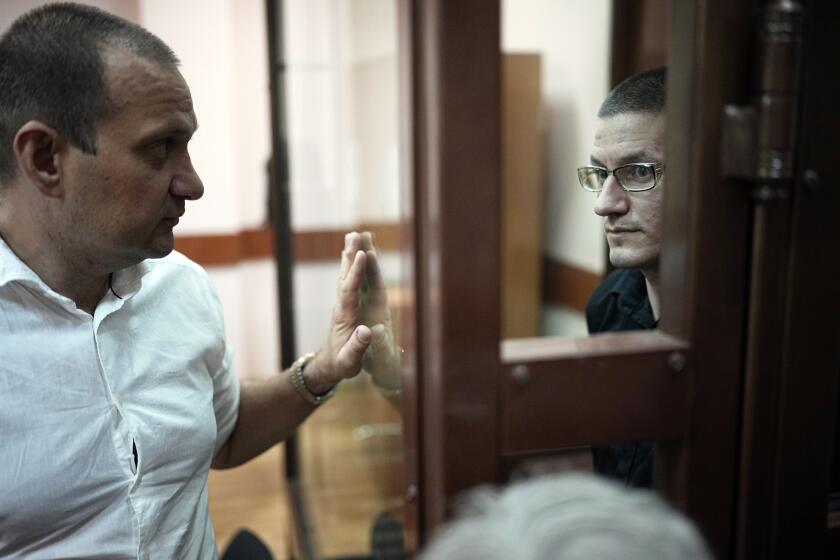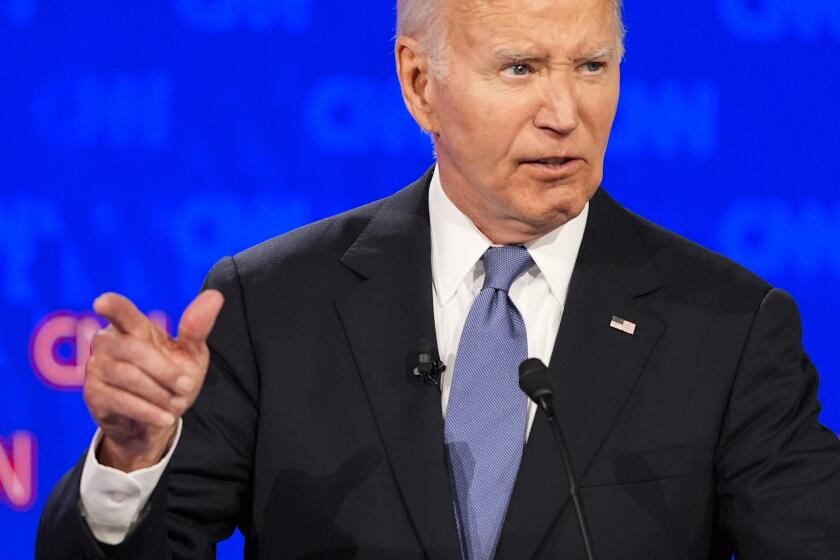Far-right groups, feeling support from Trump, find fertile recruiting ground in the Northwest
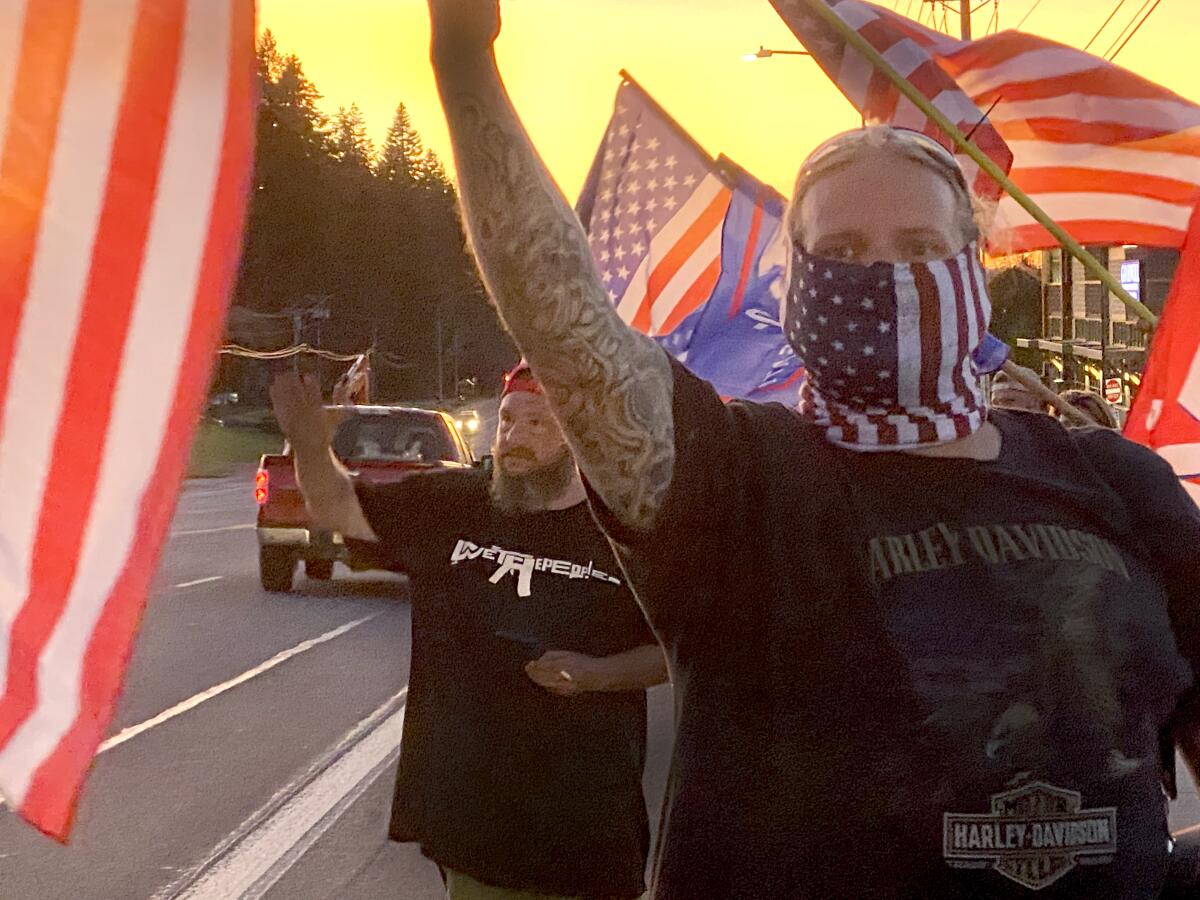
The son of Polish immigrants who fled World War II, Andrew Jerzy grew up in a family of Democrats in Southern California amid the cultural and political upheavals of the 1960s.
Taking a different path from many in his generation, he became a staunch conservative — voting Republican, tuning in to Rush Limbaugh and advocating gun rights. He kept his views to himself. A construction contractor in Sandy, Ore., east of Portland, the liberal home of many of his customers, he knew his politics could be bad for business.
This summer, however, he began attending rallies and caravans in support of President Trump and the police — activism that put him in the close company of organizations such as the Proud Boys that have ties to white supremacists and advocate taking up arms against the far left.
The unrest roiling Portland, Ore., and other cities this year has been a powerful recruiting tool for organizations like the Proud Boys, Patriot Prayer and the Three Percenters. But not everyone who supports them is draped in camo and AR-15s.
Newcomers to the pro-Trump, “back the blue” demonstrations say they’re motivated by disgust with violence at social justice protests that have raged in Portland since the May 25 killing of George Floyd in Minneapolis. The fatal shooting of a far-right supporter and the police killing of an anti-fascist suspected in his death cast Oregon as an extreme version of the country’s polarization in the final weeks leading to the election.
Trump on Tuesday again refused to condemn white supremacist and white nationalist groups. When asked during his debate with Joe Biden to disavow the Proud Boys, an organization with an ardent following in Oregon, the president said the group should “stand back and stand by.” The group’s leadership regarded the comments, which Trump sought to walk back Wednesday, as an endorsement similar to the one he gave white supremacists who marched in Charlottesville, Va., in 2017.
The unrest roiling Portland and other cities this year has been a powerful recruiting tool for organizations such as the Proud Boys, Patriot Prayer and the Three Percenters. Patriot Prayer is led by Joey Gibson, a Washington state resident who faces a felony riot charge for brawling with antifa activists in Portland last year and who was recently photographed with a former Ku Klux Klan member.
The allure of the far right is not as blunt as its slogans. People like Jerzy who show up at rallies aren’t draped in camo and AR-15s. They say they don’t condone violence or racism but want to resist what they see as a troubling liberal, anti-American tide. They are at once angry and disillusioned, feeling their voices are often drowned out amid the nation’s changing demographics and identity politics.
Jerzy, 66, who spoke on condition that he be identified by his middle name to protect his business, embraces the American dream his father sought and sees Black Lives Matter as a Marxist organization.
A staunch supporter of the 2nd Amendment, Jerzy carries a concealed handgun and wishes Portland would crack down on demonstrators he regards as entitled kids wreaking havoc. He said he’s not a racist and has no qualms about standing in solidarity with Patriot Prayer.
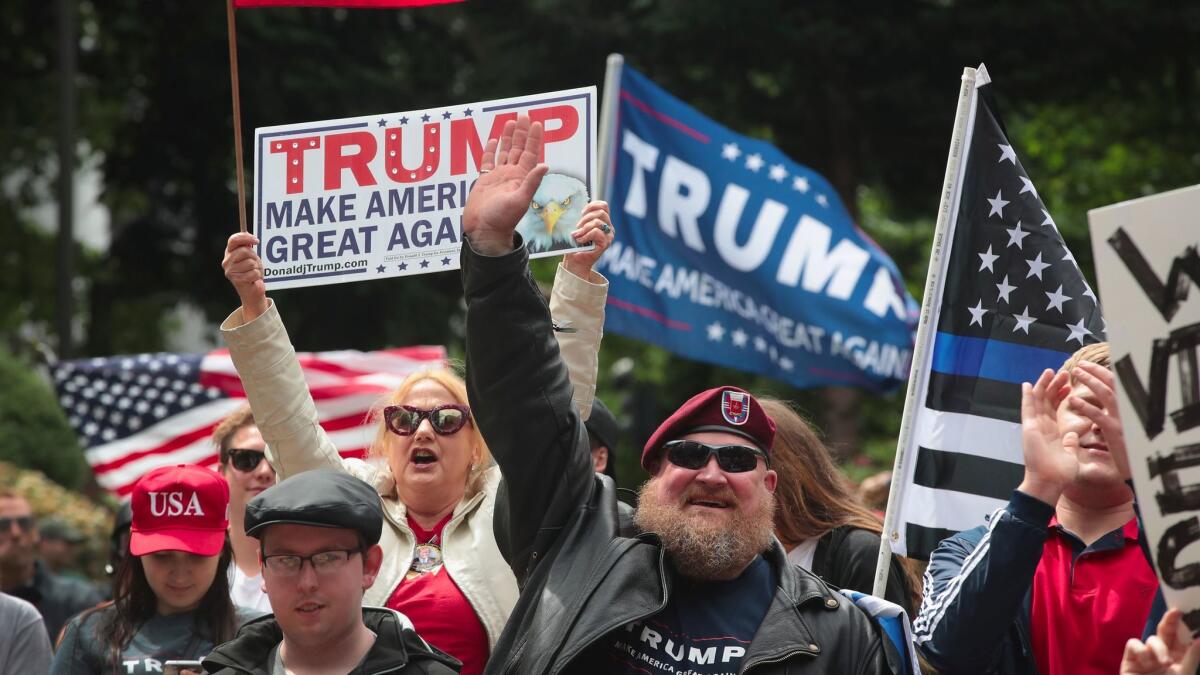
“They call them an ultra-right group, but they’re not — they’re a Christian group that believes in God, family and being a patriot,” he said.
Despite its progressive reputation, Oregon is a red state east of the Cascade Range, with a history of excluding Black residents well into the 20th century. Extremist groups such as the Three Percenters, which joined an armed takeover of the Malheur National Wildlife Refuge in eastern Oregon in 2016, find the state fertile recruiting territory.
They view it as “their job to step in and impose order,” said Cassie Miller, senior research analyst at the Southern Poverty Law Center.
Many mainstream conservatives were feeling under siege and open to extreme tactics even before this year’s unrest. A survey of a nationally representative group of Republicans conducted in January by Larry Bartels, a political science professor at Vanderbilt University, found that just over half of respondents agreed that “the traditional American way of life is disappearing so fast that we may have to use force to save it.”
More than 40% agreed that “a time will come when patriotic Americans have to take the law into their own hands.”
The far right quickly found heroes amid the chaos of the racial justice protests.
One was Kyle Rittenhouse, the 17-year-old who said he had come to protests in Kenosha, Wis., to protect businesses and was arrested and charged with murder in the Aug. 25 shooting deaths of two unarmed men. His lawyers said that he acted in self-defense, shooting them because they tried to grab his AR-15-style rifle.
Another was Aaron “Jay” Danielson, a 39-year-old Patriot Prayer follower who police said was killed by an antifa adherent in Portland Aug. 29 after a pro-Trump truck caravan of more than 600 — including Jerzy — clashed with left-wing demonstrators downtown. Danielson’s name is now standard on T-shirts at rallies in conservative communities surrounding Portland.
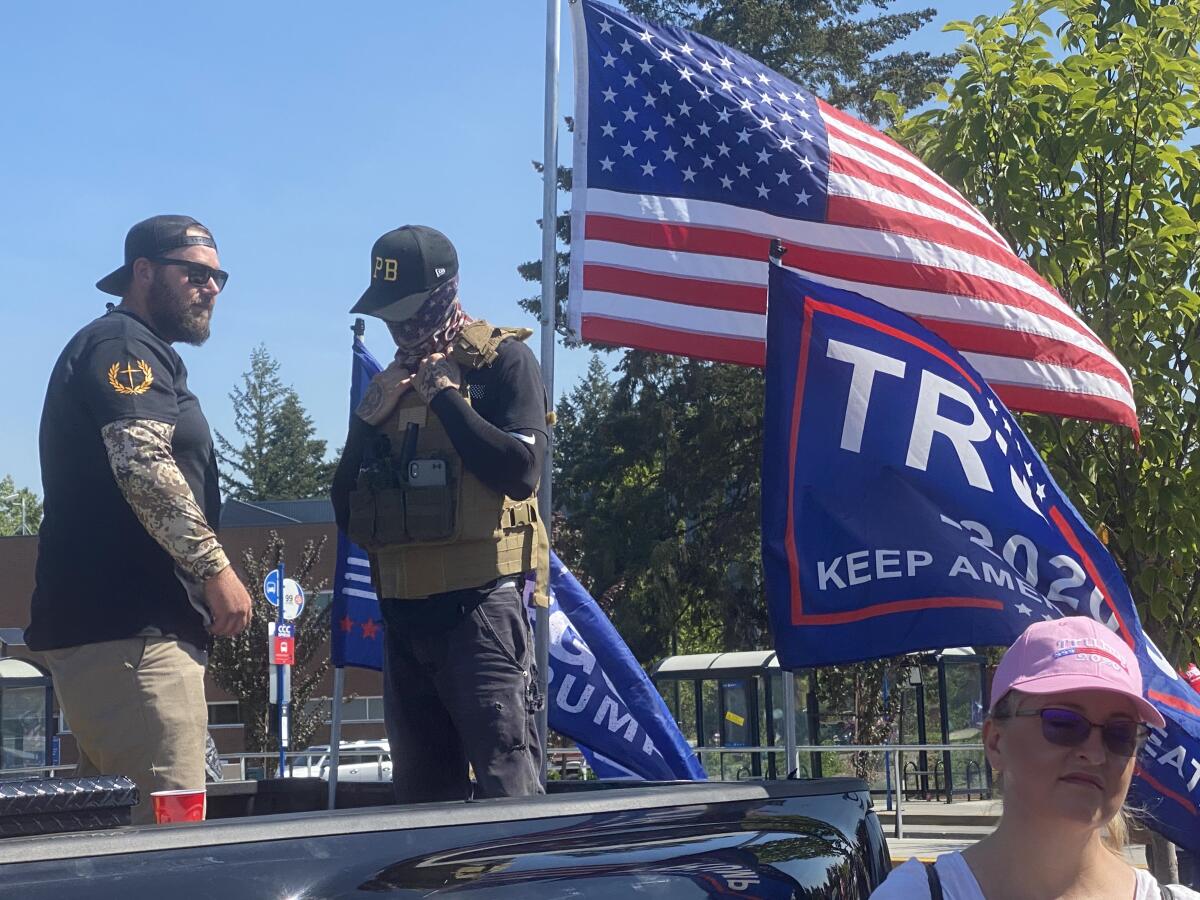
Black Lives Matter activists often appear. Yelling and shoving matches ensue, frequently involving rifle-toting members of the Proud Boys, which the Southern Poverty Law Center classifies as a hate group and which includes a number of ethnicities in its ranks. The Proud Boys, who have often fought with antifa activists in Portland, held a rally there Saturday, but a massive law enforcement presence helped prevent clashes.
Some of the rhetoric echoes mainstream Republican — “law and order,” small government, the evil of taxes — before veering into more extreme territory. At a rally in Salem, Ore., on Sept. 7, a speaker espousing the QAnon conspiracy theory said Democratic leaders should be “shot dead in the streets” for pushing what he called a “pedophile agenda” of LGBTQ rights.
It is difficult to gauge the size of extremist groups or how much they have grown in recent months. But Amy Herzfeld-Copple, programs director at Western States Center, a Portland-based organization that tracks such groups, said they have an expanding presence that has provided “opportunities to build their political power” and “incite political, civil and democratic chaos.”
Other experts said the pro-police message of the far right has also endeared it to law enforcement, further normalizing views that once seemed radical.
Rebecca Crymer, a frequent participant in Portland-area flag-waving rallies, scoffs at the suggestion she is an extremist.
The 27-year-old U.S. census worker considers herself “a weeaboo anime kind of person,” referring to obsessive fans of Japanese comics and video games. Raised in Hawaii, where her father retired as an Air Force colonel, Crymer registered at 18 as a Republican but says she was repulsed by Trump’s crude statements and voted for him reluctantly.
She moved to Oregon two years ago with her husband, a military recruiter who finds liberal Portland a difficult place to work. When Crymer showed up the first time at a rally to wave the flag, fellow demonstrators eyed her facial piercings, black crop tops and skinny jeans and accused her of being a leftist infiltrator.
“I’m like, ‘Nope, I just love America,’” she said.
She dispelled any remaining doubts when she joined the pro-Trump caravan that ended in Danielson’s death. Having dog excrement thrown at her only fortified her dedication to the cause.
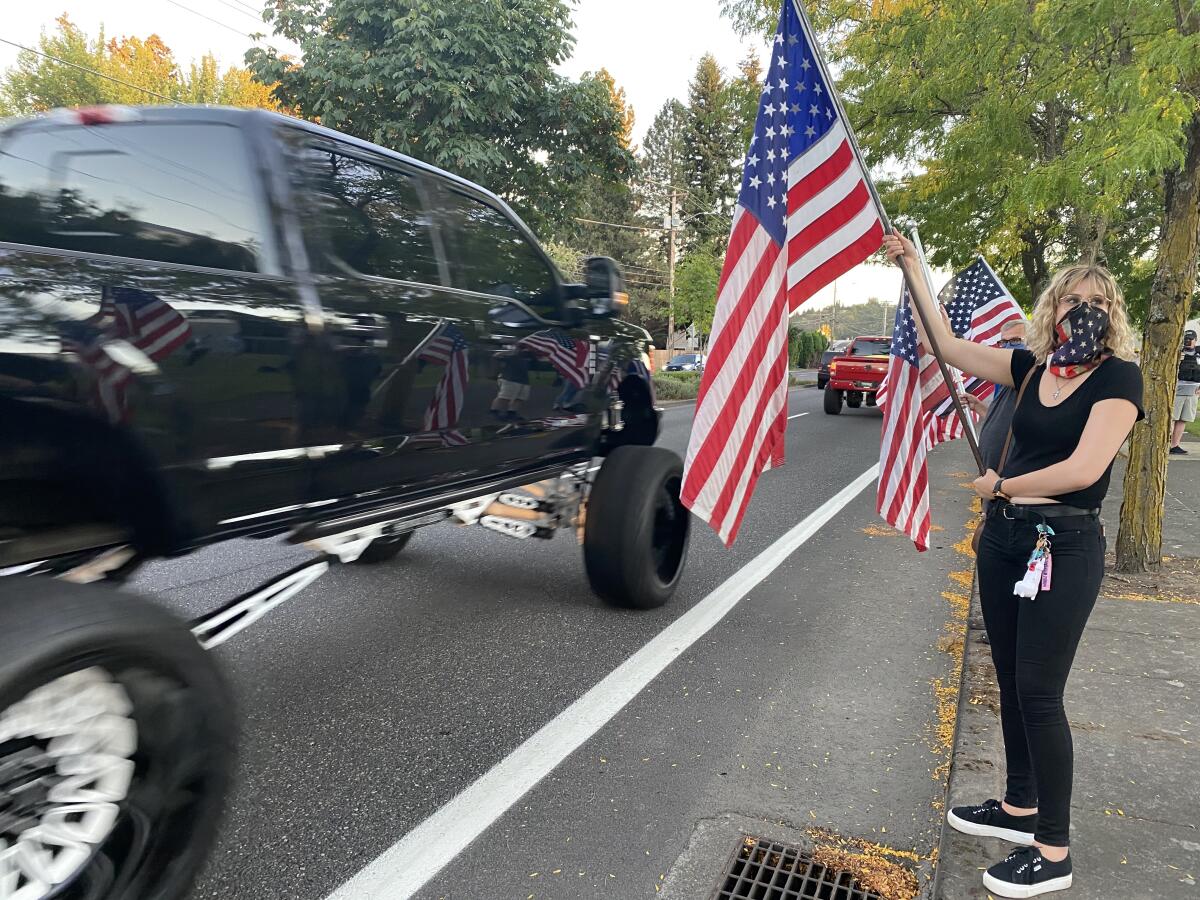
She has become an ardent supporter of Trump, extolling his stands on law enforcement and the 2nd Amendment as the nation turns more violent, she said.
“I don’t own a gun, but I’m considering getting one now,” said Crymer, a container of mace dangling from her front pocket.
The heart of far-right messaging is the idea that the United States faces an existential crisis. That perspective has become easier to pitch as crises multiply — the coronavirus, civil unrest and wildfires.
Carol Robinson, 73, a retired receptionist from a working-class family, didn’t vote for Trump or Hillary Clinton in 2016. But she has since been drawn to Trump’s stands on “law and order” and military spending. When the protests began, she became convinced that Black Lives Matter was a socialist movement and that the criticism of police was unjustified. “The police are hated by most everybody, all because of a few bad cops,” she said.
Robinson joined her first pro-police rally in June. She waves a flag at back-the-blue events held in Portland twice a week, in front of the Multnomah County Justice Center. Participants write supportive messages on blue paper hearts and stick them to the building, only to see them torn off by people who resent the police.
She plans to vote for Trump and down-ballot Republicans in November.
Times staff writer Melissa Etehad in Los Angeles contributed to this report.
More to Read
Start your day right
Sign up for Essential California for news, features and recommendations from the L.A. Times and beyond in your inbox six days a week.
You may occasionally receive promotional content from the Los Angeles Times.
